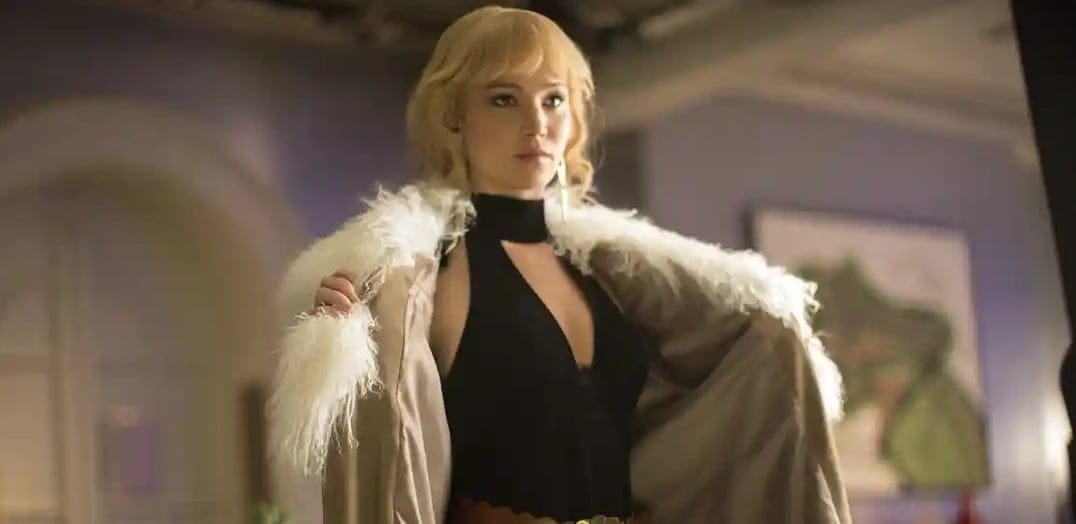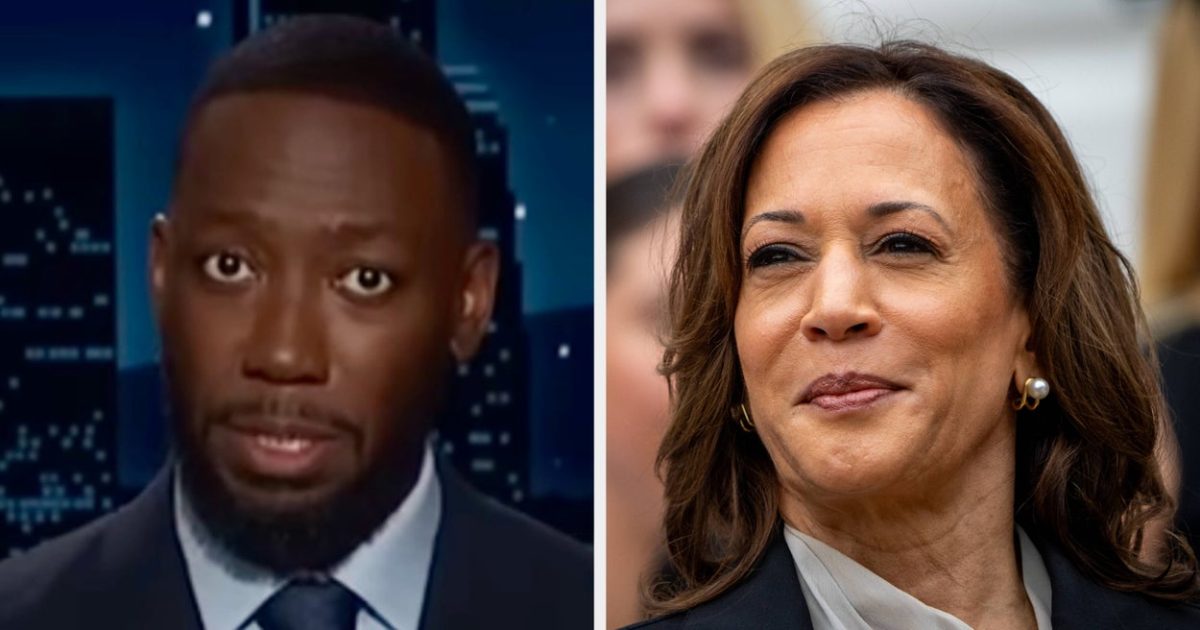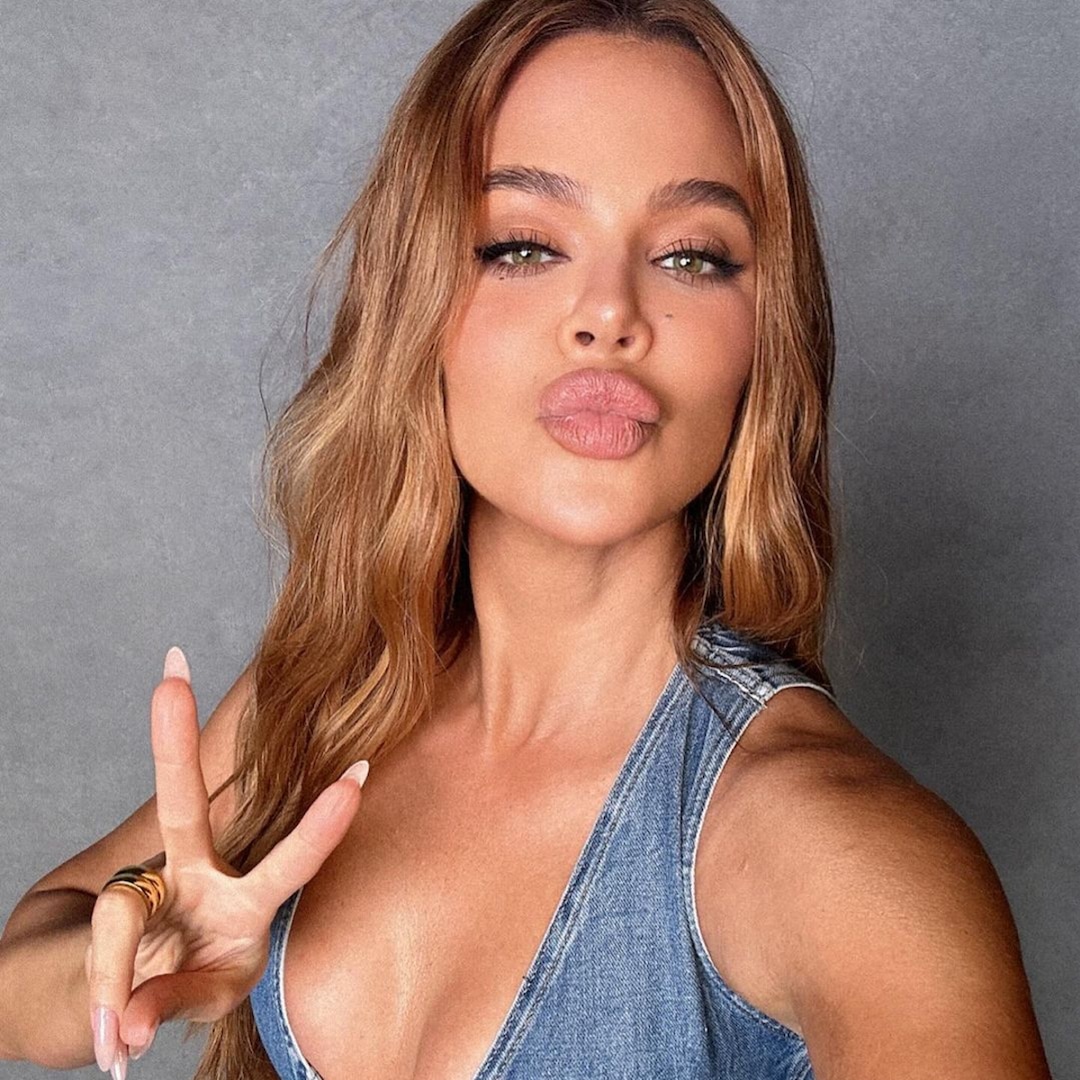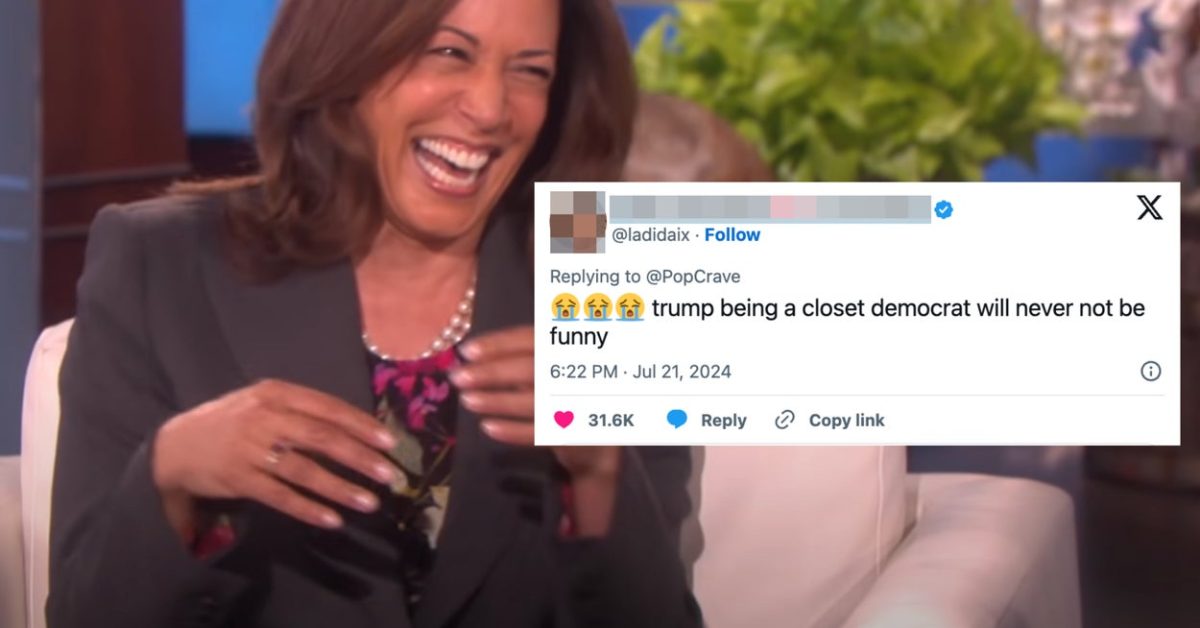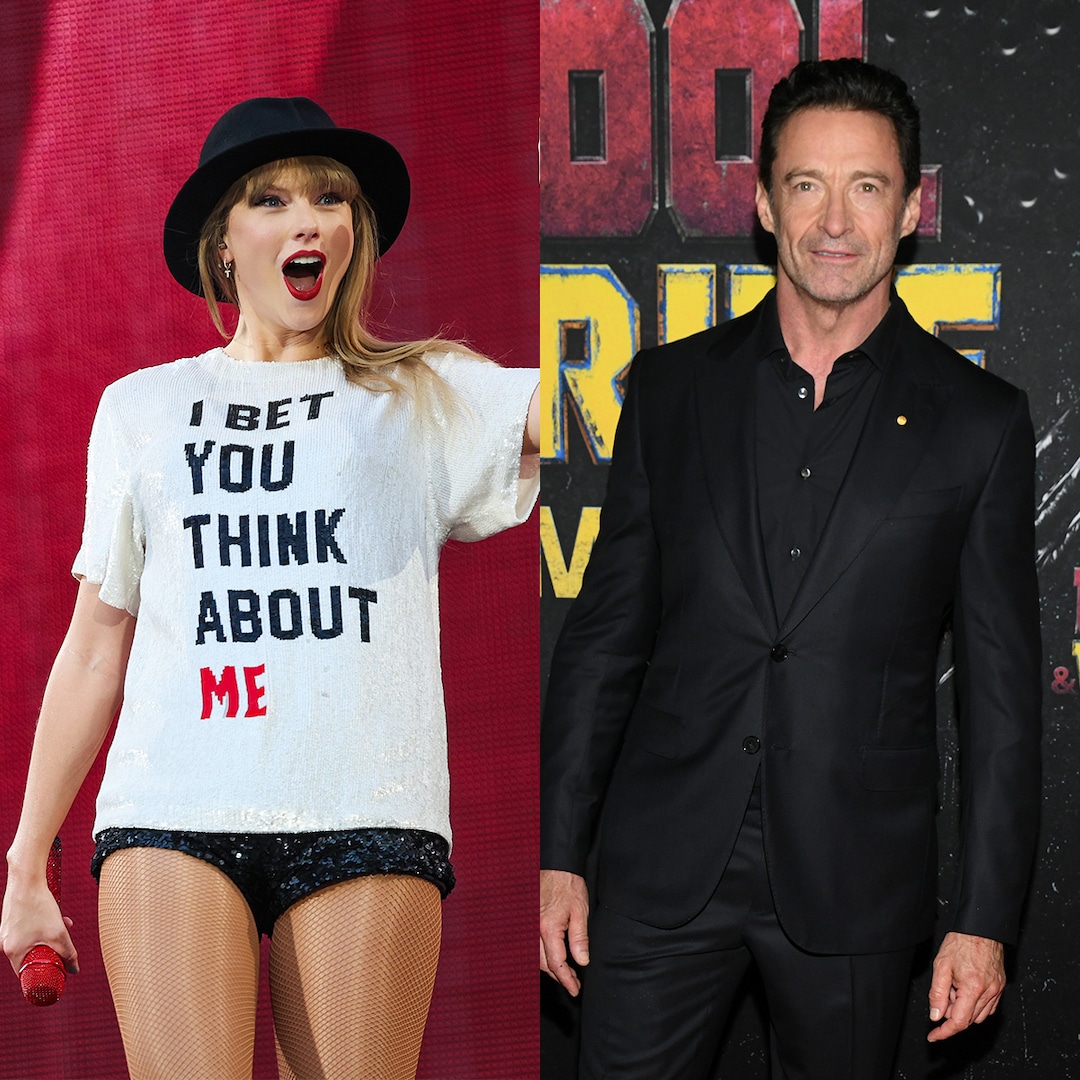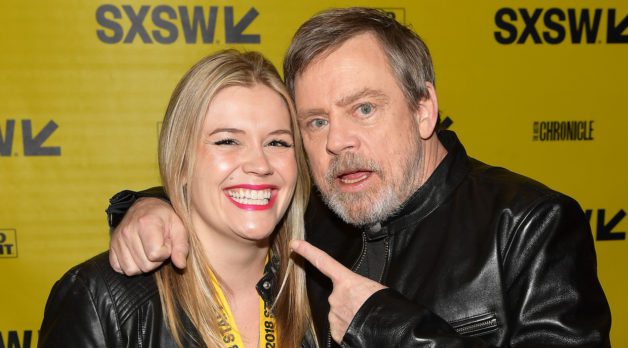
Five Questions for SXSW’s New Film & TV Festival Director Claudette Godfrey
Mar 10, 2023
Claudette Godfrey and Mark Hamill at the 2018 premiere of The Director and The Jedi at SXSW. (Photo by Matt Winkelmeyer/Getty Images for SXSW)
At this year’s edition of the SXSW Film & TV Festival, two significant milestones will be achieved: the festival will celebrate its 30th iteration, and it will be programmer Claudette Godfrey’s first as the organization’s newly-minted Festival Director. She was passed the torch back in October, taking over for SXSW leader Janet Pierson, who previously occupied the position for 15 years.
An Austin native, Godfrey has effectively worked from the ground up since she began at SXSW as a volunteer crew manager in 2006. During a recent interview via Zoom, Godfrey told me about the various job titles she’s amassed during her nearly two decade tenure at the organization, the greatest lessons she gleaned from working with Pierson and the rush of emotions she anticipates ahead of Friday’s opening night film.
For more information about the festival, visit their official website. The 2023 SXSW Film & TV Festival will run from March 10-18.
Filmmaker: You’ve been at SXSW for 17 years now, and you’ve previously stated that you successfully worked your way to the top of the ladder. Can you speak a bit about your trajectory at the festival and how your previous role, such as Festival Coordinator and Shorts Programmer, will aid you in navigating your new position as Festival Director?
Godfrey: Yes, this is going to be the 18th event I work. I think it’ll be my 16th year since coming on full-time. I was born and raised in Austin, so my whole family lives within 20 or 30 minutes of where I am. I definitely heard a lot about SXSW [growing up], but my parents weren’t super big movie people. We watched a lot of movies at home, but they weren’t taking me to the festival. My first year at UT, I bought a film pass, went and just saw a ton of movies. I was like, “This is amazing. I love this.”
Then in the fall, I was one of the leaders of a film-focused campus organization. This was before iPhones, so we would have people come and solicit for interns. That fall, a person from SXSW (who doesn’t work here anymore) came and was looking for an intern. Everybody really wanted to do it. I was the last person there, because I had to close up the room, and I was like, “I mean, maybe I’d be down for it…” And I kind of hit it off with that person and interviewed for the position, but I was under 21 and we didn’t really hire people under 21 back then; we have so many events that are in bars and have restrictions. So instead, that year I was hired to be the “volunteer traffic manager.” Now we call it a crew manager. Basically, I had to run the team that was taking 35mm prints, HD cams and all of the actual physical media out to all the venues and make sure they were at the right place at the right time. It was a total blast, and I was basically hooked after that.
The next year, I was an intern. Then the next year I worked a seasonal gig as the film traffic coordinator. It was my senior year at UT and I was like, “Okay, I’ll take this and it would just be kind of my part-time job.” But basically in spending so much time around SXSW, I was barely going to all of my classes. So I graduated that year, then I worked one summer at the CineVegas Film Festival, which is much spoken about but no longer exists. That was also the summer that [Film Conference and Festival Producer] Matt Dentler left SXSW and Janet took over [as Festival Director]. The first year that I volunteered, Janet and John Pierson’s daughter was also a crew manager with me. And when I was at UT, John was one of my professors. I’d been this person that was kind of hanging around and knew a lot of what was going on, so when the Festival Coordinator left, they made an offer for me to come back to Austin and take that job. That was also when I started doing shorts programming. I did that for several years, then I became the Operations Manager. I programmed the shorts for a really long time, and then in 2017 I became a Senior Film Programmer. I was still overseeing the shorts program, but also working on the feature film programming side.
Just in the last year, actually, my title changed to Director of Film Festival Programming. Now I have this new job! It’s funny, because I don’t think I ever had the notion at any point that I was going to climb the ladder. I was just like, “I love this place, how can I stay here?” I think in film school, I felt a little bit like it wasn’t really for me; it was dominated by men. I think why I was already a good fit to start working in this world is I sat in these rooms and thought, “There are hundreds of kids here, everyone wants to be the director. There’s not that many directors, so what’s my story?” And I realized that I didn’t feel like I had a burning story to tell, so I kind of ended up on the producing track of things. I’m really good at organizing and thinking around problems.
Being the head of a festival is a lot of logistics, but on the programming side it also kind of gives you the ability to almost be an executive producer for a bunch of filmmakers. Obviously I’m not working individually on their projects, but you can help and support a lot of filmmakers versus just producing one or two projects a year. That role sort of fulfilled that desire in me, and I think that’s still the appeal of working at an event like this—just getting to meet, know and understand creators and filmmakers and watch them grow. A lot of what we’re working on is discovering people and watching as they make more projects and help them find their audience. I think we’re kind of a connector between audiences and films that we love.
Filmmaker: You’ve worked alongside your predecessor Janet Pierson for the majority of both of your tenure at the festival. What important lessons or bits of advice have you gleaned from her leadership and hope to carry forward in the role?
Godfrey: It’s only been four months since I took over this gig, so it’s been a big change. The focus on filmmakers as the priority is, I think, the biggest lesson that I’ve learned. I mean, the worst part of our job is when we’re telling thousands of people—many of whom we know, have shown their work in the past and have a relationship with—”no.” So I also learned to be able to say “no” gracefully. Also to shift and be filmmaker-focused on the people that we got to say “yes” to—celebrate them and prioritize their experience at the festival. All of the work that we’re doing year-round is really just for that. She’s been really good at doing that and has helped show me and our whole team how to do that. That was her best skill: she hadn’t worked at a festival before, but she had worked with a lot of filmmakers. So her knowledge and talent for that has been educational for everyone at SXSW.
Filmmaker: Do you have any future visions or initiatives that you’re personally excited to explore or implement?
Godfrey: Piggybacking off of the last question, one of Janet’s skills is that she’s very collaborative. Because I’ve been programming and part of the festival for so long, the vision of what it is now is my vision. Janet was very inclusive of everyone’s point of view, so I feel like I’ve already been a significant collaborator and leader in the film and TV programming and how the festival has been run for 15 years. I’ve overseen the staff, production, changeover, the way that our applications work, all of our technical elements. I’ve had input the whole time, so it’s just more fun to keep doing it.
And there are a few things that we’ve changed this year. We changed the name of the event to the Film and TV Festival, sections that used to be called “episodic” now use the word TV. There was a moment where everyone was like, “Streaming’s not TV,” but now it seems that everyone’s like, “Everything’s TV!” again. We also have such a different audience than another film festival might have, so we wanted to make sure it was clear for our music and technology attendees that this is TV. We added the TV Spotlight section to be a home for these projects. We have a TV Premieres section, because we needed a space where we could put things like the season premieres of shows that we love, like Blindspotting. We also have two high-level projects this year that are looking for a distributor, Demascus and Shatter Belt, which are both really amazing. We’ve created some new homes for titles that we didn’t exactly have a place for before this year.
It has been a short runway, and I’m sure we’ll make some more minor changes next year. But in terms of the overall vision, we’ve already been doing it as a team, so the festival kind of already is what I want it to be.
Filmmaker: Let’s talk about the lineup for the quickly-approaching festival. As a programmer and the new Festival Director, what overlapping themes or topics have piqued your interest among this year’s crop? Do you find that any of the film or TV offerings are kind of addressing similar sentiments or dissenting sentiments?
Godfrey: What guides me is that I want to play films that are really emotionally engaging, that make me sit up and take notice. That’s the main focus. We’ve been moving in this direction, but when I look at the films that are a part of our competition, it feels like there’s a stronger move towards more personal stories. It feels like there were a lot of films this year that were coming from this super authentic place, which is a little bit of an overused word, but it really feels like what unites these films.
It’s always interesting to hear what themes people see once we have the whole program together and they start to explore it. That doesn’t become clear until much later for us because we’re looking at every film that we love and kind of don’t get to zoom out until we’re near the end of the process. But I think there’s a lot of vulnerability and maybe more room for deeper personal explorations around topics like mental health and identity. A film that we’re playing called National Anthem is really beautifully shot and acted and it feels idyllic in a way. It’s really cool to start seeing stories that are a little more complex. With a lot of queer stories, it’s always like, “Where’s the conflict?” But why is that necessary? Actually, there is conflict in the film, but it’s more internal. I think that’s what has been the most exciting and unifies a lot of stuff in the program this year.
Filmmaker: I know that this year there is definitely a huge shift to get everyone back on the ground in Austin. What are you most excited for your team, festival goers and yourself to (re)-experience when it comes to the in-person festival and the city itself?
Godfrey: Every part of it delights me. [laughs] We are working the whole year towards this one week, and it’s kind of an explosion of joy. Yes, it’s hard and it’s tiring, but there are a million little moments of joy. For me, the first time I’ll be like, “Oh, this is my job now” and have it sink in is probably going to be opening night. Just being there, I always cry. [laughs] Everyone’s back together in one room and we get to hear a crowd together in the Paramount [theater]. From both sides, I know how much time, effort, love, care, money and sacrifice has been put in by the filmmakers and the SXSW team to make it to this place.
I just always feel so grateful that filmmakers make films. I can’t make a film. [laughs] I also feel so grateful for all the work that my team puts in. To see it all come together in the first films that every venue starts to play always brings a little tear to my eye. I like to stand in the very back as the opening night screening starts and just see and hear the audience settling into their seats. To hear that first laugh or gasp in that dark room together—which for some filmmakers is one of the most important things that they’re looking for—and get that audience connection.
Closing night is the same way. We’ll have a really big film this year that’s going to be announced later. But I feel that way every day at every screening that I go to, because I’m getting to meet and talk to so many different filmmakers. Honestly, I don’t even know what this feeling is because I think it’s every feeling. It’s excitement, happiness, joy, nervousness. It’s good and bad feelings all put together and it’s life, you know? I’m sorry, I’m so cheesy, but it’s so true though. I really am who I am, and there’s no reason to work this hard and try to watch this many movies if you’re not really feeling it.
Publisher: Source link
Lamorne Morris Thinks Kamala Harris Has This Advantage Over Donald Trump
Trump said that President Joe Biden, who dropped out of the race on Sunday while recovering from COVID-19, never really had the infection. “Really? Trump thinks Biden never had COVID?” Morris said on Monday. “You don’t pretend to have COVID to get out…
Jul 26, 2024
Khloe Kardashian Is Ranked No. 7 in the World for Aging Slowly
Khloe Kardashian's body is out for more than just revenge. In fact, the 40-year-old is one of the world's slowest agers—a revelation she learned after taking a blood test to determine her body's biological age compared to her calendar age.…
Jul 26, 2024
Reactions To Trump’s Kamala Harris Donation
Just as many white Americans used their Obama vote to excuse their internalized racism, Lauren Boebert seems to have adopted this same ideology, ignoring Trump's long record of racism against African Americans, Mexicans, Hispanics, Native Americans, Muslims, Jews, and immigrants, and discrimination against women and…
Jul 25, 2024
Hugh Jackman Reveals What an NFL Game With Taylor Swift Is Really Like
Hugh Jackman is happy to fill any blank space in Taylor Swift’s NFL game suite. In fact, the Deadpool & Wolverine star recently detailed his experience attending a Kansas City Chiefs game to root on Travis Kelce, alongside Ryan Reynolds,…
Jul 25, 2024
